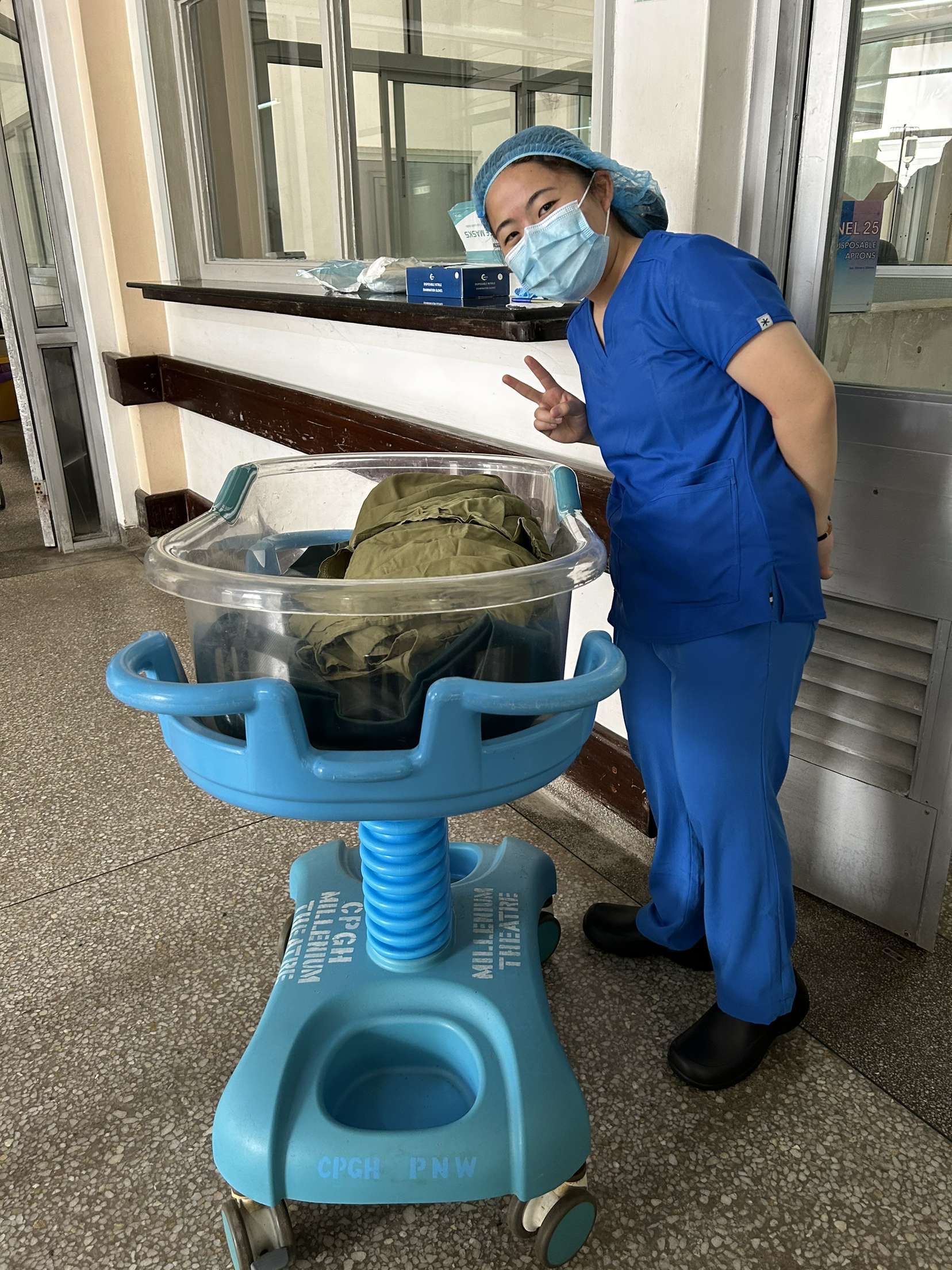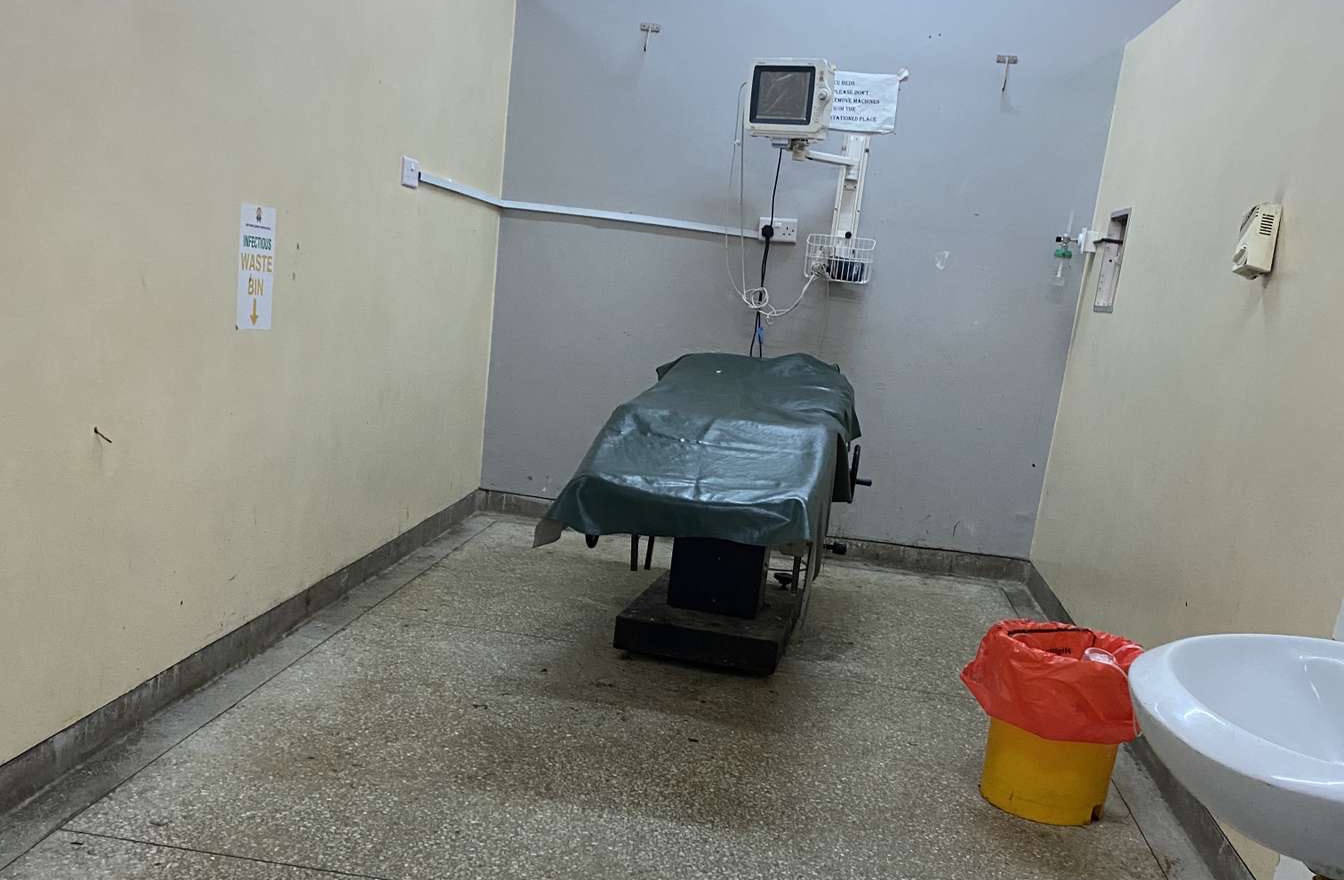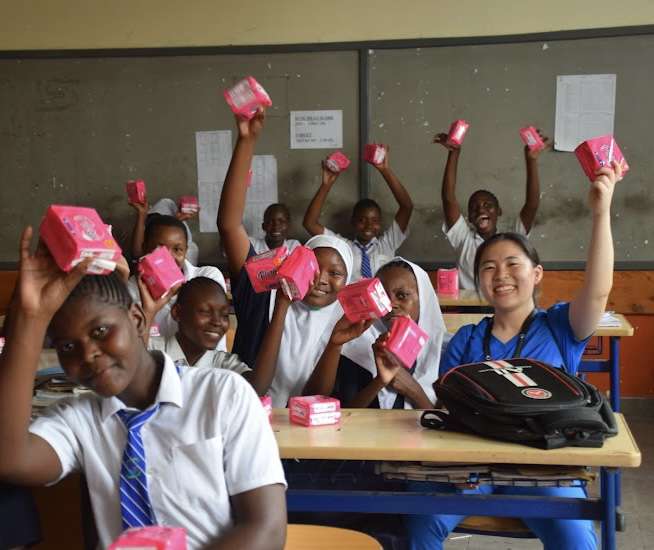Keila Jelling's International Medical Aid internship in Mombasa, Kenya
"Girl, nothing! Nothing!” Keila Jellings cried out in response to the question about what kind of exposure she had to women’s health education while growing up. She had transferred school districts and missed the whole section about reproductive health. Partly because of this experience, Jellings, a senior at Purdue majoring in Plant Science and Microbiology, built such a passion for women’s health education that she spent two weeks this past May in a medical internship in Mombasa, Kenya.
 Up until two months ago, Jellings had been a pre-med student obsessed with the TV show Call the Midwife. She was introduced to the importance of women’s health from having friends that struggled with polycystic ovarian syndrome, hormone imbalances and irregular periods. Jellings became invested in being an advocate for all people who have periods.
Up until two months ago, Jellings had been a pre-med student obsessed with the TV show Call the Midwife. She was introduced to the importance of women’s health from having friends that struggled with polycystic ovarian syndrome, hormone imbalances and irregular periods. Jellings became invested in being an advocate for all people who have periods.
“I’m super passionate about women’s health, especially women’s health education,” Jellings emphasized. “That’s something that I’ve always tried to keep myself educated on and look at world perspectives, not just what’s in the U.S. So, when I was looking for an internship, I wanted to go to a country that was going to give me a different perspective, something that you would never be able to see in the U.S.”
It’s difficult to find medical internships internationally for pre-med students, so Jellings felt lucky to see one posted about on an online forum. International Medical Aid, or IMA, allows everyone from doctors to undergraduate students to shadow medical professionals in busy hospitals in Africa and South America. According to their website, “IMA is the ethical leader in global health education and experiential internship programs, serving as a meaningful alternative to for-profit organizations.”
During Jellings’ two-week internship in Kenya, she shadowed three departments: obstetrics and gynecology, pediatrics and the emergency department. Jellings worked in the government-run public hospital, which is understaffed, underfunded and overfilled. She saw mostly women, and quickly witnessed the vast discrepancies between women’s healthcare in America and abroad.
Jellings saw a lot of poverty and struggle both in and out of the hospital. She described seeing everything from children outside gathering water from puddles of sewage in zipper bags to crowded hospital waiting rooms where a man who had been assaulted by a knife had to wait eleven hours to even be seen by a doctor. One of the hardest things she struggled with in her internship was people reaching out and grabbing her scrubs, begging for her to help them even though she couldn’t as a student. She also said the heat, being that only the operating rooms have air conditioning, made it hard to endure the long hours of shadowing and fetching supplies.
Jellings said, “If there was something that I wish that I could give to Kenya, it would be medical equipment. They were extremely under-resourced, and they were using nitrile gloves as tourniquets. They have to reuse needles. Many women don’t have access to fetal ultrasounds.”
Despite all the hardships she saw while there, Jellings cannot stress enough how much she learned from the internship. She was able to shadow several medical procedures, even live births and C-sections, and she also saw the impact of diseases endemic to Kenya, like malaria, cholera and Dengue fever. Her favorite part of the internship, however, was getting to teach. She taught three different clinicals surrounding women’s health, mental health and hygiene at three different schools.
“It was very cool to be able to answer questions from them, and it normalized the conversations around women’s health.” Jellings detailed the experience of talking about periods and women’s reproductive care at the Kaa Chonjo Junior Secondary School. “It gets very stigmatized in a lot of countries, and I didn’t realize that until I got there. It was very cool to just be able to talk to girls and say, ‘Hey this is normal to talk about and it’s totally fine. And, if you’re ever in an uncomfortable situation, this is what you do and this is where you go.’”
“I would love to study pollen in graduate school. I’ve always valued education, and I actually have a lot of teachers in my family. What I respect about professors is that I think they always know that they can get better, and that’s something I really like. I like that mindset that, when you work on something and you practice something, you’re going to get better. Endgame, I would love to be a professor in botany.”








